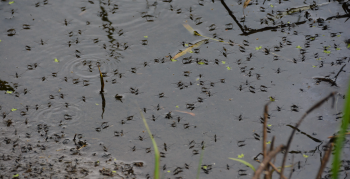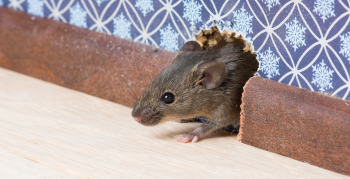Environmental Health Services
Provides permitting and evaluation of tattoo artists and assists with control of mosquitos and rodents.
Address: 3205 Freedom Dr. Suite 8000, Charlotte, NC 28208
Email: [email protected]
For information on tattoo permitting and evaluation: [email protected]
Telephone: 980-314-1620
-
Tattoo Practices

Anyone wishing to practice as tattoo artists must complete an application for tattooing permit.
All tattoo and permanent makeup artists are required to have have:
- Autoclaves in each studio for the sterilizing of tattoo instruments
- Sink(s) for hand washing.
- Proper storage and disposal of solid waste.
- Studios kept clean and in good repair.
- Records are kept for all autoclave tests and clients.
- Artists must demonstrate knowledge of proper aseptic techniques.
Upon meeting these standards, the artist will be issued a permit.
Fees
- New Artist - $225
- On-time Renewal - $125
- Late Renewal - $225
Important Documents
- Tattoo Application
- Fact Sheet
- Tattoo Permit Checklist
- Microblading/Permanent Makeup Checklist
- Tattoo Pop-Up and Event Guidance
- Rules Governing Tattooing 15A NCAC 18A .3200
Note: Body piercing is not regulated under NC Public Health laws or by Mecklenburg County ordinance.
-
Demolition

The demolition or relocation of any structure in Mecklenburg County requires an inspection and approval by Environmental Health under the County rat control ordinance.
Inspections
An onsite inspection is made to determine if any of the following conditions exists:
- Presence of Norway rats
- Presence of solid waste addressed by the County Solid Waste Management or Rodent Control Ordinance.
- Abandoned septic tank or well.
- Presence of hazardous materials
Other environmental hazards may exist which would need to be addressed by other government agencies (e.g. asbestos - addressed by County LUESA Air Quality).
Applications
Inspections are usually performed on vacant structures. Health Department approvals are good for 60 days. This approval is not a permit to demolish or move, it is merely one of the requirements of LUESA before issuing a Building Permit.
Completed applications may be mailed to:Mecklenburg County Public Health Department
3205 Freedom Drive, Suite 8000
Charlotte, NC 28208 -
Mosquito Control

Mecklenburg County uses a comprehensive approach to mosquito control. Since mosquitoes go through several growth stages in standing water prior to emerging as flying adults, control strategies always focus on identifying, managing, treating and eliminating artificial and natural bodies of standing water capable of supporting mosquito populations.
When standing water sources cannot be permanently eliminated, various physical, chemical, or biological control measures can be put in place such as the use of larviciding pesticides to kill mosquito larvae before they can grow into adults.
Mosquitoes present both a public health concern as carriers for diseases such as Zika, West Nile Virus, Eastern Equine, and LaCrosse encephalitis. If you have questions or wish to notify us of potential mosquito sources, call 980-314-1620.
Resources
Repellents & Pesticides
-
Rodent Control

Mecklenburg County Environmental Health maintains a program to control and prevent rodent and vector infestation public health problems.
If you would like assistance with a rodent problem please send an email or call 980-314-1620.
More Information
Ten Tips for Rodent Control
- Store garbage in metal or heavy plastic containers with tight lids.
- Place trash outside shortly before pickup; don't leave plastic garbage bags out overnight.
- Remove weeds and debris near buildings and in yards; don't give rats a place to hide.
- Store opened food in metal or glass containers with tight lids.
- Don't leave extra pet food out; store it in a secure container.
- Sweep up food remains, litter, and trash inside and outside your home.
- Inspect your basement and house for cracks and holes; seal them with mortar.
- Make sure you have screens on windows; inspect windows and screens for holes.
- Keep outside doors closed; use metal trim to prevent rodents from gnawing and entering underneath.
- Don't provide hiding places for rodents; store materials such as lumber and boxes on a rack with a clean, open area underneath.

